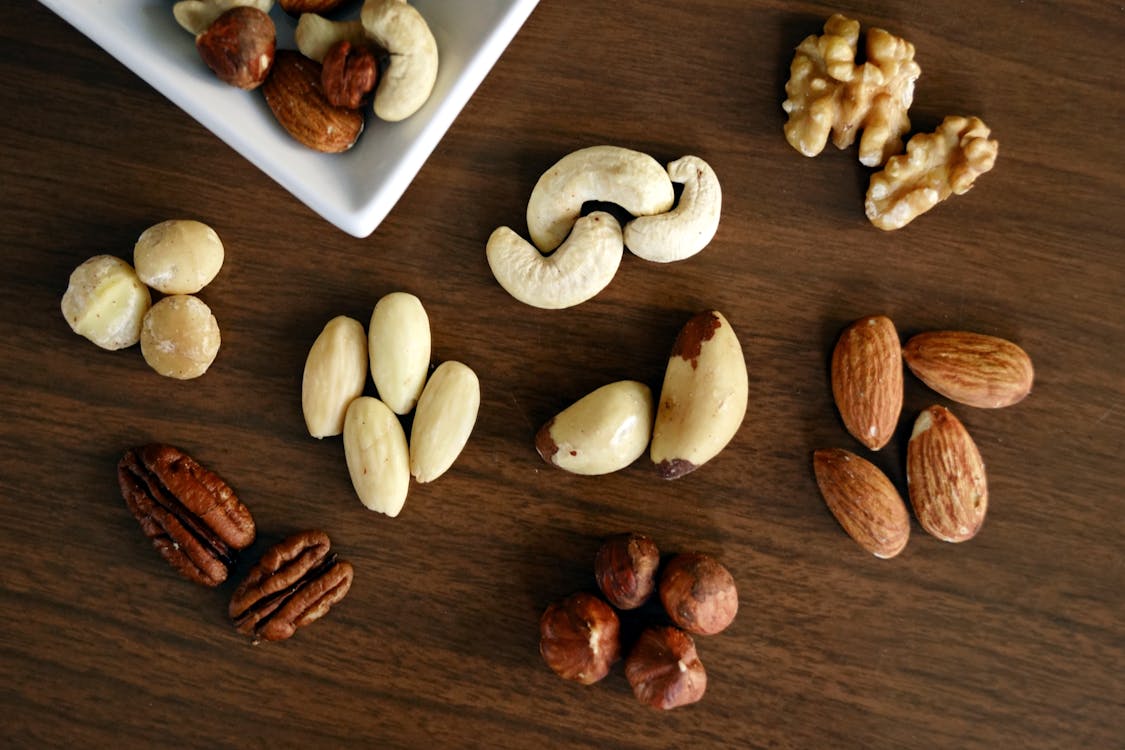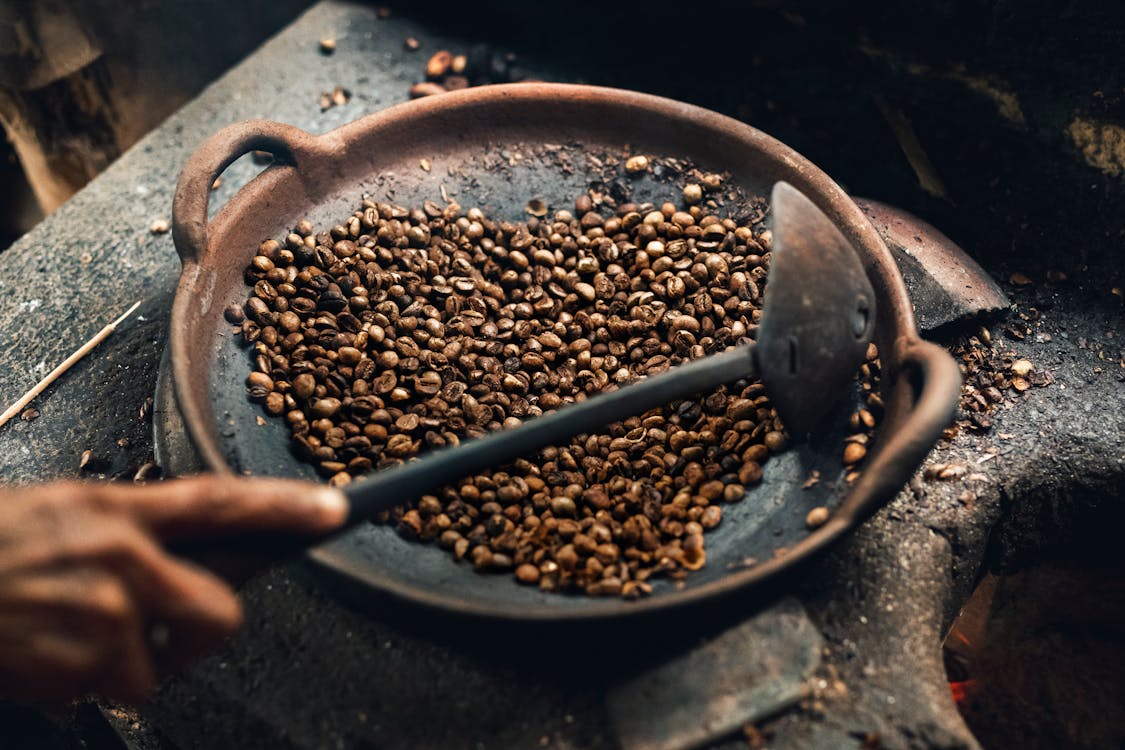Eat foods high in nutrients like fiber, vitamins and minerals that support the function of your heart and arteries. Choose vegetables, fruits and whole grains. Limit sodium and saturated fats.
1. Salmon
Salmon is a heart-healthy choice because it's full of omega-3 fatty acids, which help prevent blood clots and keep your arteries clear. It's also rich in protein and vitamins B12, D and selenium, which can help lower your cholesterol level and protect against heart disease.
Unlike most other fish, salmon doesn't contain much saturated fat, making it ideal for those concerned with their heart health. You should eat at least two servings of fish a week to ensure your body gets enough omega-3's.
Other heart-healthy foods to add to your diet include green leafy vegetables, broccoli and spinach. Broccoli is packed with fiber, beta-carotene and other nutrients that may help lower your cholesterol and increase your “good” HDL levels, while spinach provides a rich source of iron, calcium and potassium.
2. Green Leafy Vegetables
These veggies are also high in dietary nitrates, which have been shown to lower blood pressure, reduce arterial stiffness and improve the functionality of cells lining your arteries.
A new study from Edith Cowan University found that by eating a cup of nitrate-rich vegetables daily, people can significantly reduce their risk of developing heart disease later in life. Researchers analyzed data from 50,000 people who took part in the Danish Diet, Cancer and Health Study over 23 years.
3. Broccoli
A new study reports that eating broccoli regularly could help protect your heart by improving blood vessel health. Researchers studied a group of 1000 women and found that those who ate more cruciferous vegetables, like broccoli, had thinner (healthier) arteries, less plaque and a lower risk of cardiovascular disease and death.
Broccoli, in particular, has some powerful antioxidants that support your heart and brain. The vegetable's high concentration of glucoraphanin can convert into sulforaphane, which can boost your body's redox cycle to help fight off inflammation.
Another important nutrient is potassium, which helps prevent irregular heartbeats and regulate blood pressure. It's also a good source of iron, calcium and fiber.
4. Nuts
They also help to decrease inflammation in the body and may reduce your risk of heart disease. The 'good' fats in nuts- monounsaturated and polyunsaturated fats- help lower bad cholesterol and triglycerides in the bloodstream, while the omega-3 fatty acids may improve the lining of your arteries.
Eating several small servings of nuts a week has been linked to a 14% lower risk of heart disease in a recent study. Researchers surveyed 210,000 participants in three large prospective studies over 32 years and found that higher consumption of nuts was inversely associated with total cardiovascular disease and coronary heart disease.
5. Berries
Berries are high in antioxidants that reduce the buildup of plaque on arteries and help prevent heart disease. They also contain soluble fiber that helps control blood sugar levels and may help lower cholesterol.
Blackberries and blueberries, for example, are particularly effective at reducing inflammation and making blood vessels more elastic. They’re also rich in anthocyanins, a type of flavonoid that reduces blood pressure and increases the amount of “good” cholesterol in your bloodstream.
These tasty fruits can be enjoyed in a variety of ways, from juice to sorbet to smoothies. Eating them in large servings is a good way to reap their heart-healthy benefits.
6. Beans
These foods also offer some important nutrients that are needed for the proper function of your cardiovascular system, such as B vitamins, iron and folate. And, unlike meats, beans and other legumes are low in saturated fat and cholesterol.
Other important nutrients that are essential for heart health include potassium, magnesium and dietary fiber. Green vegetables, such as spinach, broccoli, cabbage and kale, are packed with these micronutrients. They are also high in fiber, which can help reduce the risk of heart disease by reducing blood pressure and lowering the level of bad cholesterol.
7. Whole Grains
One of the most important foods to keep your heart healthy is whole grains. They're a good source of fiber, which helps lower blood cholesterol levels.
In addition, they're rich in B vitamins for healthy red blood cells and folic acid for pregnant women.
Eating a diet rich in whole grains is linked to lower risk of cardiovascular disease, diabetes and obesity.
When choosing grains, opt for intact whole grains that contain the bran, germ and endosperm. Look for "whole grain" or “100 percent whole wheat” on the label and avoid multigrain products that have more than one type of grain in them.
8. Leafy Greens
One of the most often-heard pieces of nutrition advice for heart health is to consume leafy green vegetables regularly. Unfortunately, a lot of people don’t get enough of these heart-healthy veggies.
However, a recent analysis of 13 studies found that people who eat one cup of raw, nitrate-rich vegetables each day have lower blood pressure and are less likely to develop a variety of cardiovascular problems.
Nitrate-rich vegetables such as kale, Swiss chard, arugula, and cabbage convert into nitric oxide in the body, which can help lower your blood pressure. In addition, they are rich in folate and vitamins K1 and K2 that may promote heart health from proper blood clotting to reduced cholesterol levels and improved arterial function.
Healthy Skin Tips For Face - Achieving a Radiant Complexion
9. Fruit
Whether fresh, frozen or canned, fruits and vegetables can be a great addition to any diet. They are rich in vitamins, minerals and fiber, all of which help to reduce the buildup of plaque that can lead to heart disease.
Fruits are also high in potassium, a mineral that helps to lower blood pressure and improves circulation. Bananas, potatoes, melon and spinach are all excellent sources of potassium, while oranges, apples and broccoli can also provide this nutrient.
In addition to containing potassium, many of these fruits are also low in sodium. This is a key part of a healthy cardiovascular system, and it’s important to remember that sodium is an inflammatory agent that can contribute to vascular problems like high cholesterol levels.
10. Healthy Fats
Limit your intake of foods high in saturated fats and trans fats, which are found in meats, cheese, fried foods and desserts. Saturated fats can increase bad cholesterol and raise your risk of developing heart disease.
Monounsaturated and polyunsaturated fats can also help lower your bad cholesterol levels and reduce your risk of heart disease. Oils such as olive oil, safflower and sunflower oils are good sources of these beneficial fats.
To reduce your intake of saturated fats, swap red meat for poultry without skin and limit the amount of dairy you eat to low-fat products. You should avoid foods high in sugar as well, which can be harmful to your heart health.





